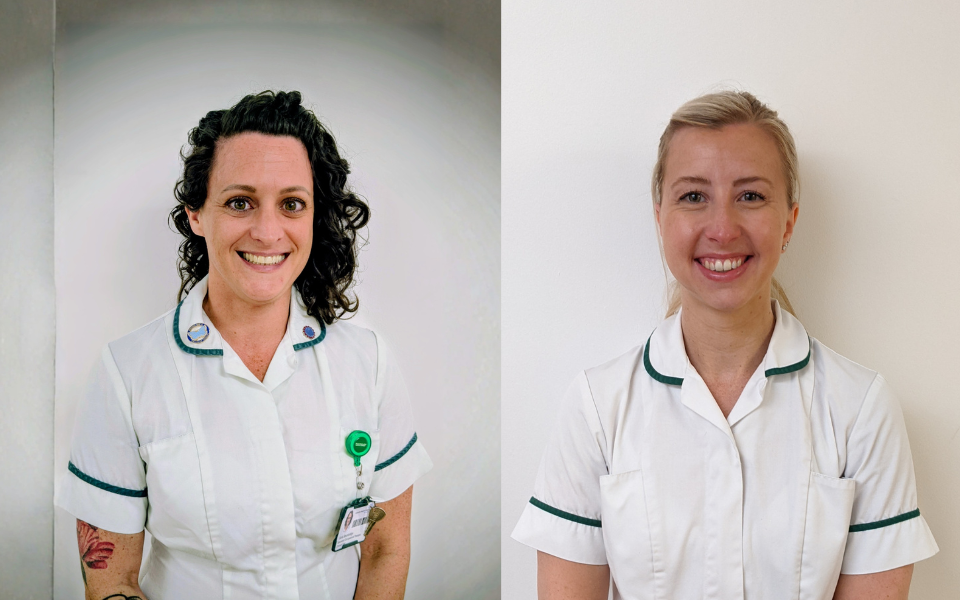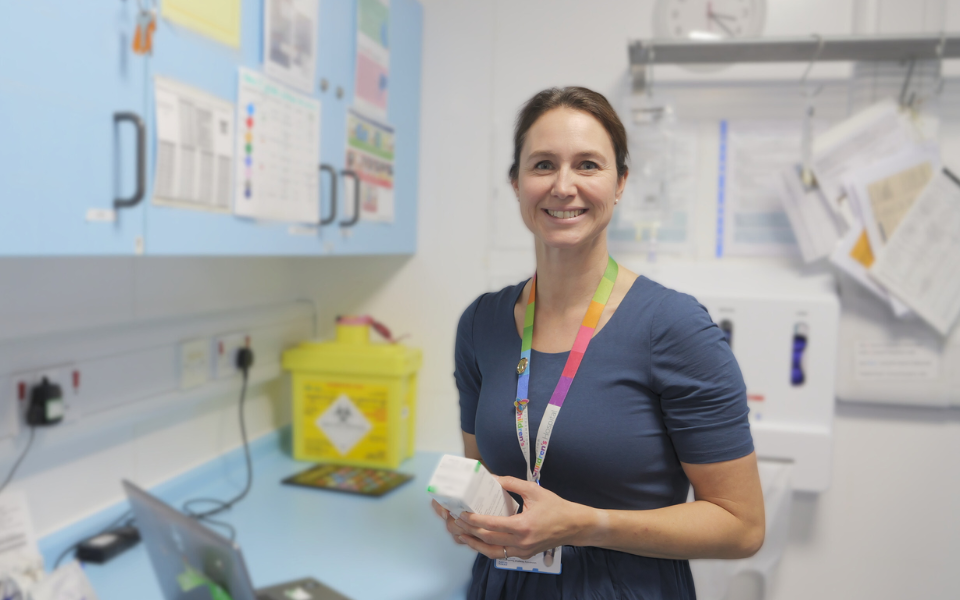
Healthcare science | Research
How Paediatric Oncology Pharmacists Make a Difference: Claire’s Story and Career Insights
Every day, pharmacists step into roles that demand expertise, compassion, and adaptability. Often becoming the unsung heroes in the lives of patients and their families.
Today, we’re sharing the story of Claire, a Paediatric Oncology Pharmacist whose journey is a testament to the power of dedication, curiosity, and the drive to make a difference. From her early days as a resident pharmacist to joining a specialist team, Claire’s path reveals how pharmacists are shaping the future of healthcare. One patient, one family, and one breakthrough at a time.
Tell us about your journey from qualifying as a Pharmacist.
After completing my degree in pharmacy at the University of Nottingham, I started my pre-registration year at Kent and Canterbury Hospital before returning to Nottingham University Trust (NUH) to start as a resident pharmacist. This involved working within a team of 16 junior pharmacists who were responsible for covering the Trust out of hours, as well as rotating through many different specialities. This role taught me many skills, including prioritisation, teamwork and communication, as well as exposing me to lots of different clinical specialities. Despite enjoying lots of the rotations, I wasn’t sure what speciality I was drawn to the most at this point in my career.
Once I had completed my 2-year residency post, I secured a rotational senior pharmacist post at NUH. My first-year rotation was within paediatrics. And I haven’t looked back since. I rotated first through Paediatric Intensive Care and then through Paediatric Oncology. I instantly enjoyed the pace and complexity of patients on the Paediatric Intensive Care Unit (PICU) and was reluctant to move to paediatric oncology. However, I shouldn’t have judged a book by its cover. Paediatric Oncology from the outside seemed quite scary and intimidating, especially after having a few tricky on-call scenarios to deal with whilst I was a junior Pharmacist.
However, once I began in paediatric oncology, I knew this was my true passion. I realised the vital role a pharmacist plays within this team; chemotherapy is the main intervention in cancer care, and as a pharmacist, you are the expert in medicines and therefore vital for the functioning of the MDT.
You are the link between the patient and the ward to multiple parts of pharmacy, including dispensary, clinical trials, technical services and outpatient pharmacy.
You get to know the patients and their families as they access the service frequently, they get to know who you are, and therefore come directly to me to ask questions and ask for support with their medicines. Paediatric Oncology was the first time I felt so involved with a patients journey and this is always so rewarding.
I had decided that paediatric oncology was where I wanted to stay and was excited when a post at UHS was advertised. I was due to rotate out of paediatrics in Nottingham and as I had grown up in Kent, I was always keen to relocate back to the South coast.
I moved to Southampton in 2013 and have never regretted this decision. I have progressed from being the only pharmacist covering this unit, to now leading a team of 3 three highly specialist pharmacists and a senior pharmacy technician, whilst also preparing my professional portfolio to hopefully soon fulfil the role of a Paediatric Oncology Consultant Pharmacist.
A paediatric oncology pharmacist has such a varied role, we cover daily duties to the ward, verify and order chemotherapy prescriptions, interpret trial protocols into prescription templates that can be prescribed by the prescribers and advice on dose modifications that may be needed due to drug interactions or toxicity. We are involved in writing supportive care guidelines and developing policies and procedures and investigating the cause of incidents to improve clinical governance within the speciality.
What led you to specialise in paediatric oncology, and what drew you to working with children and young people in this setting?
I fell (reluctantly at the time) into paediatric oncology as it was a rotation assigned to me during my first year of being a senior pharmacist. I had many preconceptions on what the role may be like however I was entirely wrong.
I particularly enjoy working with paediatric patients and their families. Its enjoyable being in an environment that focuses so much on the patient as a whole, ensuring they have the best treatment, care and experience.
You get to know the patients and their families as they access the service frequently, they get to know who you are and therefore come directly to me to ask questions and ask for support with their medicines. Paediatric Oncology was the first time I felt so involved with a patient’s journey, and this is always so rewarding.
How do you see your role directly impacting the lives of young patients and their families?
My office is based within the paediatric oncology day unit and therefore I am directly accessible to staff as well as patients and their families.
It’s satisfying to know that families can knock on my door and directly ask me questions about their (Child’s) medications and enquire if there are any small changes that we can make to improve their experience.
Behind the scenes one of the most important aspects of my job is screening the chemotherapy prescriptions. This is vital to ensure that all doses of medications have been calculated correctly and have taken into consideration ongoing test results (for example heart and kidney test results) to ensure that the patient does not experience excessive toxicity, which is vitally important to ensure the short- and long-term health of the patient.
Are there any hobbies or interests outside of Pharmacy that help you stay grounded or bring you joy?
I am keen swimmer and thoroughly enjoy training with a local triathlon club or open water swimming at numerous locations across the New Forest. I find swimming not only keeps me fit and healthy but provides an opportunity for some head space.
Pharmacy is constantly evolving. What kind of training or learning opportunities have helped you grow in your specialist role?
The world of pharmacy has evolved so much since I became registered and there are so many varied roles and opportunities. Along my career I have completed a diploma in clinical pharmacy, completed the NHS Leadership Mary Seacole award, become an independent prescriber and more recently completed a post graduate masters in Genomics.
Genomics is reshaping the delivery of healthcare on a huge scale, and most relevant to my career is the use of genomics, in diagnosis, treatment choice and use of targeted medicines in cancer care as well as the area of pharmacogenomics – how our own genetics can affect the way we respond to medications. This is a constantly evolving field and having the master’s qualification has set me in good stead for the future as well as opening up research opportunities.
What makes Southampton a unique place to work in healthcare, especially within a specialist paediatric service?
Southampton is the Principle Treatment Centre (PTC) which operates as the central hub for paediatric oncology within Wessex. All children with a potential cancer diagnosis are referred to Piam Brown and the unit is responsible for conducting all investigations and coordinating their cancer treatment. Southampton have 12 shared care centres around Wessex allowing patients to receive some of their care closer to home. As a pharmacist at the PTC, we liaise closely with these sites to ensure seamless continuity of care.
More locally my role involves with other major specialities within child health, for example patients may require the input of renal, infectious diseases and critical care teams. The child health pharmacy team is a close knit team who support each other’s work.
What’s one misconception people often have about Pharmacists?
We historically have been perceived to be a hidden profession, often considered to be based solely in dispensary, only involved in the filling of prescriptions prescribed by doctors.
I think roles such as mine demonstrate that pharmacists play a much larger part of the multi-disciplinary team, with so many varied opportunities. We are the experts in medicines, are non medical prescribers, act as a direct point of contact for patients and other healthcare professions.
What advice would you give to someone considering a career in Pharmacy?
Do it! It is a wonderful career with many varied opportunities to have direct impact on patients care and wellbeing. Our roles as pharmacists continue to expand and at a time when healthcare is changing so rapidly with the application of genomics and clinical research, who knows what pharmacy will look like in the next 10-20 years!
Looking ahead, what excites you most about the future of Pharmacy and your role within it?
As mentioned before, I am embarking on completing my Consultant portfolio and becoming a Consultant Pharmacist. This post will reflect my experience in the field as well as supporting other pharmacists and members of the multidisciplinary team (MDT) in the delivery of care. I will be responsible for generating and disseminating evidence to drive improvements in paediatric cancer care.
From navigating the uncertainty of early rotations to becoming a driving force in paediatric oncology, Claire has embraced every challenge with empathy, expertise, and a passion for making a difference. Her leadership in building a specialist team, her commitment to patient-centred care, and her drive to advance the profession show just how far a pharmacist’s impact can reach.
Claire’s story is a testament to the vital role pharmacists play, not only as medicine experts, but as trusted partners, educators, and leaders who help shape the future of healthcare every day.
If Claire's story has inspired you to consider your own path in pharmacy, why not take the next step? Together, we can shape the future of healthcare, one patient, one team, one story at a time. Explore our open job opportunities here and discover how you can play a vital role in transforming healthcare.
Related Blogs
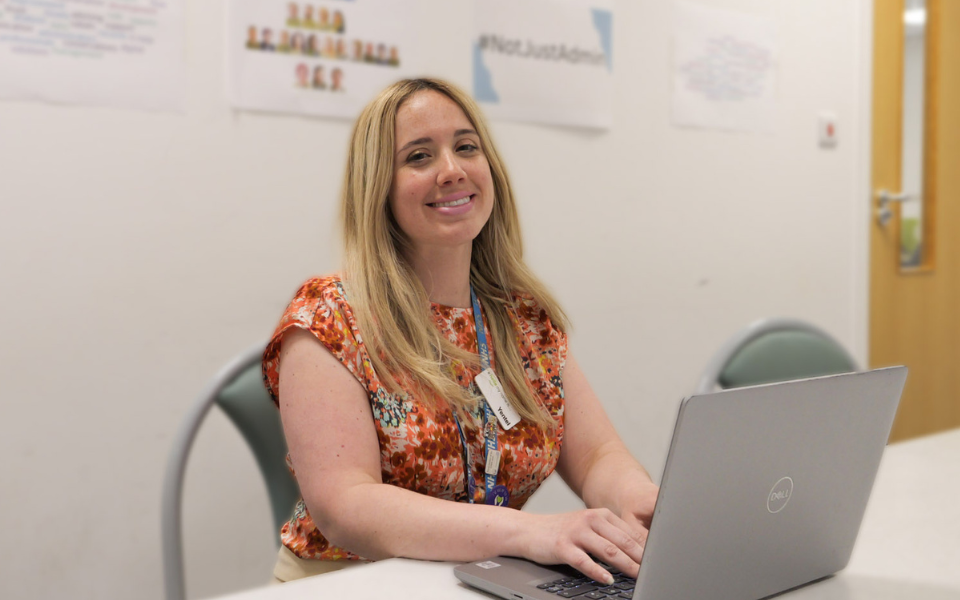
From Sports Coach to NHS Innovator: How Yentel Found Purpose at UHS
More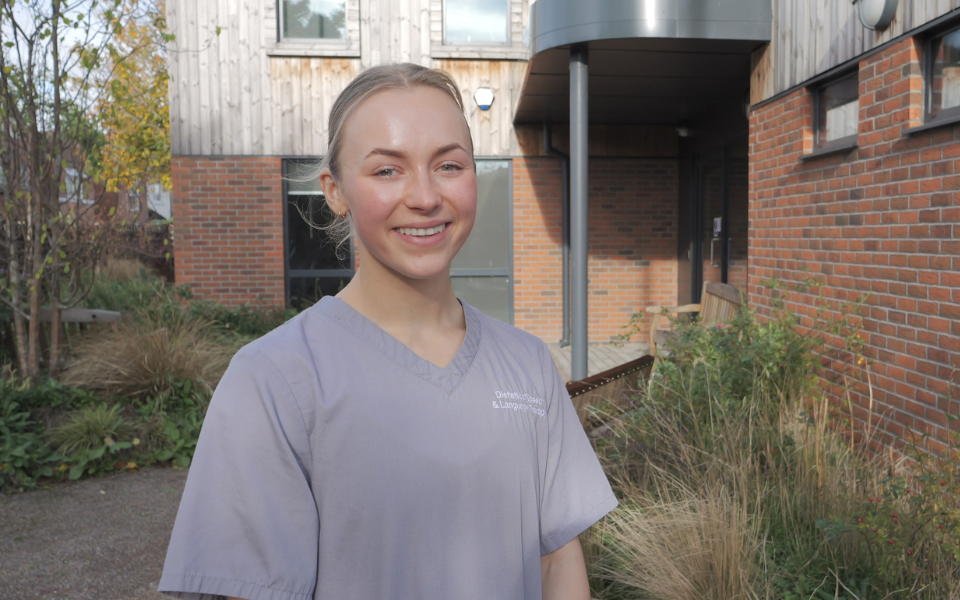
Supporting Newly Qualified Professionals: The Impact of Preceptorship at UHS – Goda’s Story
More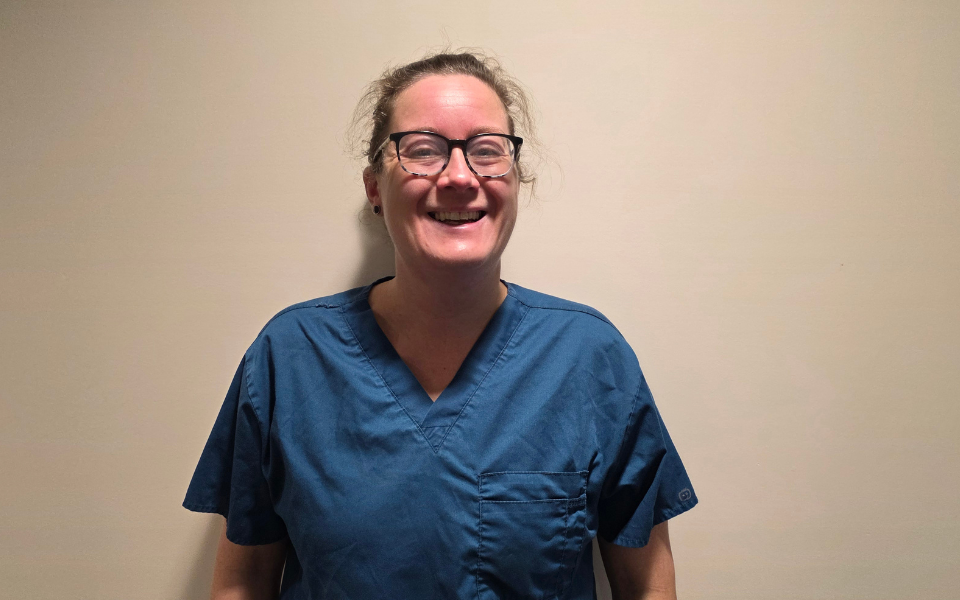
From Childhood Dream to NHS Specialist: Lizzi’s Journey in Pharmacy
More